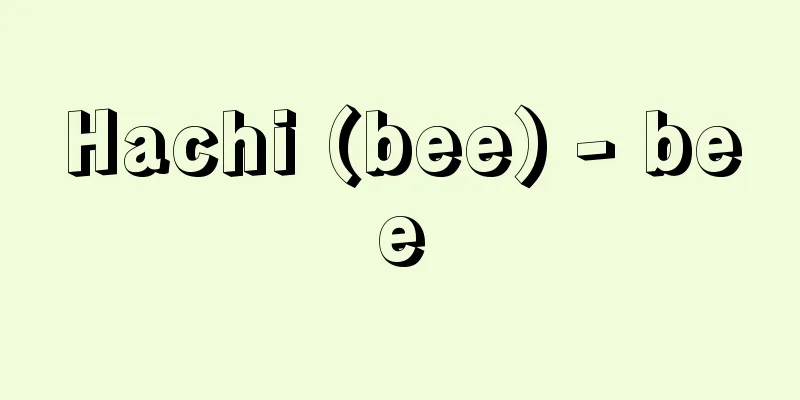Bored - Aki

|
In psychology, this is called "mental saturation." Whether simple or complex, if you continue doing the same work, you will become bored. You won't get bored much with work that you are interested in, but you will quickly become bored with monotonous work that you are not interested in, or with complex work that you are not interested in. When you get bored, the quality of your work will deteriorate and the amount of work will decrease. This is the state that people often refer to as "feeling disgusted." If you are forced to continue in this state, not only will it cause emotional outbursts and abandonment of work, but it may also develop into violent acts against the person who forced you to work. This state of excessive psychic saturation is called "oversaturation." Being in a state of psychic saturation for a long period of time will naturally lead to perpetuating frustration, so people with low frustration tolerance can easily fall into a state of confusion. Many violent incidents against parents and teachers are caused by psychic saturation due to forced study. Explosions due to psychic saturation can also occur due to conflict. It is the conflict between the desire to accomplish a task and the desire to abandon a tedious task. When you get bored, that is, when you fall into mental saturation, you should change direction temporarily and return to your original work after a while, but many people end up forcing themselves to endure it. Mental saturation is always countered by moving on to another task. If you fall into mental saturation while concentrating on studying for an exam, you can continue your original study efficiently by taking up your hobby for a short time or listening to music. This is what is called a break. There are young people who do one thing while doing another, called the "Nagara-zoku." These people knit or study while listening to the stereo. In the case of knitting, it is not a problem because it is characterized by repetitive movements, but it becomes a negative when it requires memory and understanding, such as studying. When mental saturation occurs with a certain task, you will also feel disgusted with other tasks that are similar to it. This is the phenomenon called co-saturation. Therefore, when creating a program for a break, you should be careful not to bring in anything similar to your original task. In vaudeville theaters, not only rakugo but also a variety of other performances such as storytelling, magic, popular songs, and manzai are lined up to prevent the audience from falling into mental saturation. The disciples of the German psychologist Lewin established the following three laws regarding mental satiation: (1) As desires are satisfied, psychological satiation occurs. (2) The more passionate you are about a job, the more likely you are to experience psychological saturation. (3) The nature of psychological saturation varies depending on a person's personality and the structure of the work given to them. Some of the personality traits of people who are prone to psychological saturation include the following: lack of willpower (not independent, not firm, unsteady), instability (weak brakes on willpower), moodiness (unstable mood, suddenly becoming moody), exhilaration (always in a frivolous mood, clumsy), and explosiveness (prone to the release of angry emotions). [Masao Omura] [Reference] | |Source: Shogakukan Encyclopedia Nipponica About Encyclopedia Nipponica Information | Legend |
|
心理学の専門語では心的飽和という。単純であっても複雑であっても、一つの仕事を継続していると飽きが生じてくる。自分が興味をもっている仕事では飽きはあまり生じないが、興味がない単調な仕事や、複雑でしかも興味がない仕事では飽きは急速におこってきてしまう。飽きが生じてくると、仕事の質が悪くなったり、量が減ったりしてくる。よく嫌気がさすというのはそのような状態のことである。この状態を強制的に続行させると、情動的な爆発や仕事の放棄がおこるばかりでなく、仕事を強制した人に対する暴力行為に発展することもある。このように心的飽和が過剰になった状態を過飽和という。長時間にわたって心的飽和の状態に置かれると、当然、欲求不満(フラストレーション)を永続させることになるから、欲求不満耐性(フラストレーション・トレーランス)の脆弱(ぜいじゃく)な人は、容易に混乱状態に陥ってしまう。親や教師に対する暴力事件のなかには、強制的な勉強による心的飽和に原因するものも多い。心的飽和による爆発は葛藤(かっとう)(コンフリクト)によってもおこってくる。ある仕事を成就しようとする欲求と、めんどうな仕事を放棄してしまえという欲求との葛藤である。 飽き、すなわち心的飽和に陥ったときには、一時的に方向を転換し、少したってふたたびもとの仕事に戻るようにすればよいのであるが、多くの人はがまんして自分で自分を強制してしまう。他の仕事に向かうことによって心的飽和はかならず打ち消される。受験勉強に集中しているときに心的飽和に陥ったら、短時間自分の趣味に手を出したり、音楽を聴いたりすれば、効率的にもとの勉強を継続することができる。いわゆる息抜きである。「ながら族」といって、一つのことをしながら他のことをする若者がいる。ステレオを聴きながら編物をしたり、勉強したりする人たちである。編物のような場合は反復的動作が特徴なので問題ないが、勉強のような記憶や理解を必要とする場合はマイナスになってしまう。ある仕事で心的飽和が生じると、それに類似した他の仕事にも嫌気がさしてくる。これが共飽和という現象である。そこで息抜きのプログラムをつくるときには、もとの仕事に類似したものをもってこないようにくふうすべきである。寄席(よせ)では、落語だけでなく講談、手品、歌謡曲、漫才など多くのバラエティを並べて観客が心的飽和に陥らないようにしている。 ドイツの心理学者であるレビンの弟子たちは、心的飽和について次のような三つの法則をたてている。 (1)欲求が満足されるにしたがって心的飽和がおこってくる。 (2)熱心にやっている仕事ほど心的飽和がおこりやすい。 (3)その人の性格や与えられた仕事の仕組みによって心的飽和の様相は変わってくる。 心的飽和をおこしやすい人の性格特性としては、次のようなものをあげることができよう。意志欠如性(意志が自立していない、しっかりしない、フラフラしている)、不安定性(意志活動のブレーキが弱い)、気分易変(いへん)性(気分が安定していない、突然不機嫌になってくる)、爽快(そうかい)性(いつも浮いた気分、おっちょこちょい)、爆発性(怒りの情動が放出されやすい)。 [大村政男] [参照項目] | |出典 小学館 日本大百科全書(ニッポニカ)日本大百科全書(ニッポニカ)について 情報 | 凡例 |
<<: Akiami (Autumn shrimp) - Acetes japonicus
Recommend
Shadow of Mt. Fuji
〘Noun〙① The image of Mt. Fuji as seen reflected on...
Design
… The proteins that compose the intermediate fila...
Enter the gun and come out the woman - Iridepponinideonna
In the Edo period, this refers to the guns that we...
Al-Taḥtāwī, Rifā`ah Bek Rāfi`
[Origin] 1801. Taffeta [Died] 1873. Cairo Egyptian...
Trumpeter (English spelling)
A general term for birds in the family Psophiidae ...
Oshio Chusai
...He was a yoriki (police officer) at the Higash...
NNW - NN Double
Abbreviation for Net National Welfare. Also known...
Seisin
…For this reason, it can be translated as “posses...
Addition formula - kahokoushiki
...Formula (III) expresses tan( x + y ) as a func...
Pierray, C.
...The structure and performance of the instrumen...
ICU - ICU
An ICU (Intensive Care Unit) is a management syste...
Allgäu (English spelling)
The region is still dominated by industrial centr...
Flashover
A state in which electrodes in a gas are bridged b...
Nieuwenhuis, D.
...Participants heard reports on the experiences ...
Mars Rover - Kasei Tansaki
A spacecraft that explores Mars and its surroundi...









